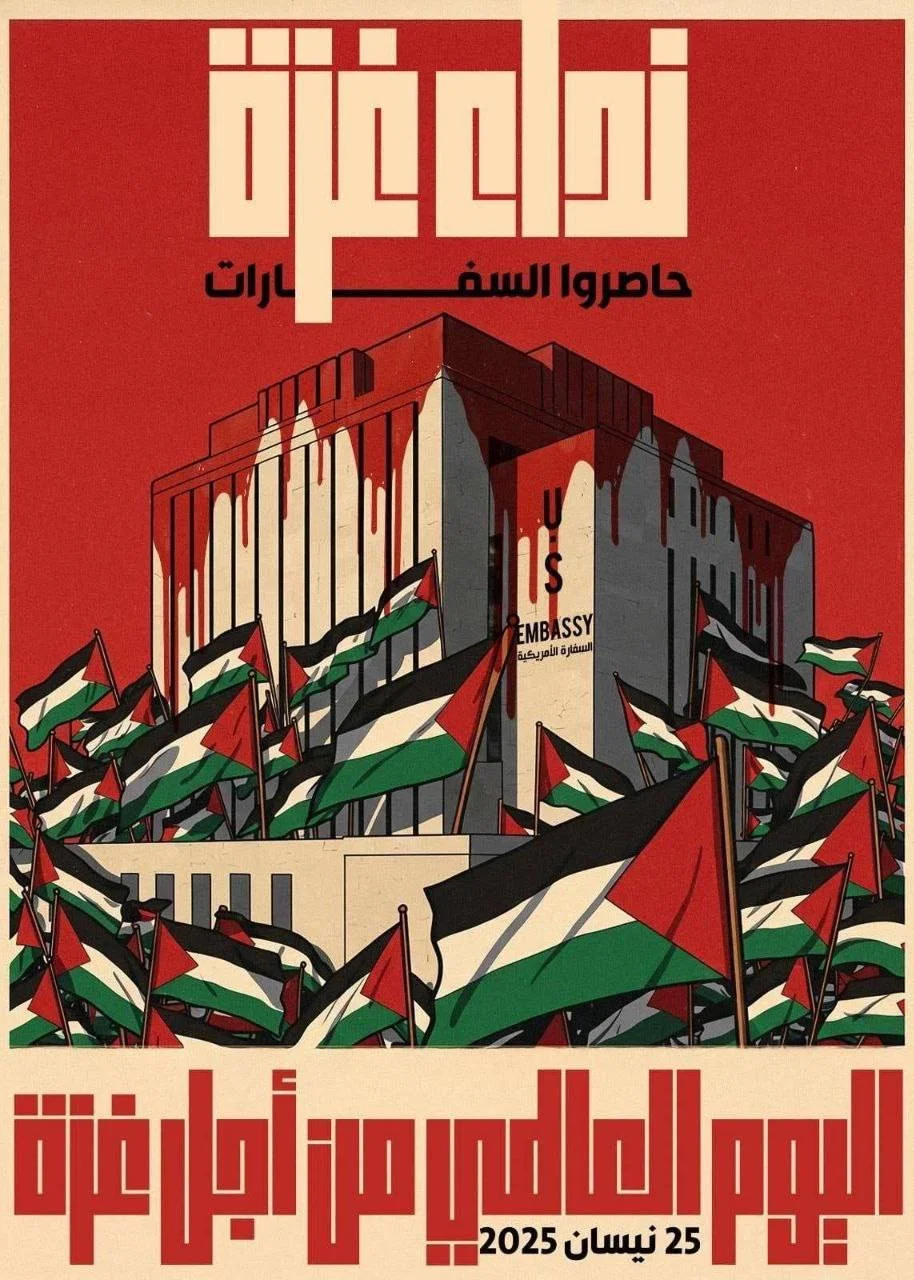Shehab Media Circulates Call to Besiege U.S. Embassies on “International Day for Gaza”
Executive Summary
The Gaza-based, pro-Hamas Shehab News Agency published a poster on its Telegram channel calling for worldwide protests targeting U.S. embassies on April 25, 2025, dubbed the “International Day for Gaza.” The poster, featuring blood-dripping embassy walls and Palestinian flags, urges supporters to “besiege the embassies.” This public appeal has sparked concerns about potential unrest and raised alarm over the use of provocative language. Shehab, banned from Facebook for promoting content deemed supportive of violence, remains influential on alternative platforms and continues to mobilize global audiences around Gaza-related activism.
Analysis
On April 17, Shehab News Agency, a pro-Hamas media outlet operating from Gaza, released a provocative visual through its Telegram channel. The image shows Palestinian flags encircling a blood-streaked U.S. embassy and bears the slogan: “Gaza Calls: Besiege the embassies.” The campaign is scheduled for April 25 and is part of what activists are calling the “International Day of Gaza.”
While Shehab framed this as a grassroots initiative by activists, the visual’s violent symbolism and the direct call to “besiege” diplomatic buildings raise red flags. The term “besiege” implies surrounding, blockading, or isolating, potentially leading to confrontations, disruptions, or even violent outcomes.
This messaging aligns with Shehab’s history of incendiary content. The agency was banned from Facebook in 2021 for “repeatedly violating community standards,” including alleged praise or support for groups classified as terrorist organizations. Despite bans from major platforms, Shehab maintains a robust presence on Telegram and Twitter, where it continues to broadcast pro-resistance narratives and calls for action.
This campaign is part of a broader pattern of anti-American rhetoric tied to U.S. support for Israel. In the context of the ongoing Gaza conflict, such calls to action—especially when paired with emotionally charged imagery—are being scrutinized for their potential to incite unrest near American diplomatic missions globally. Notably, the date chosen comes amid increasing tensions in Gaza and across the region.
Though no group has claimed organizational responsibility for the embassy siege initiative, Shehab’s dissemination of the message grants it international visibility and amplifies a message that could inspire disruptive protests or worse.


